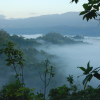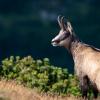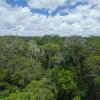The BEC Group develops and applies state-of-the art ecological knowledge, methods, and tools to understand ecosystem functioning, biodiversity change, and feedbacks in coupled social-economic-ecological systems. We use this knowledge to develop management options to achieve biodiversity and sustainability goals
The BEC group is the institute’s hub of applied ecology and conservation research. The group provides the needed ecological and conservation insights to help IIASA promote institutional, demographic, behavioral, technological, social, and economic changes that achieve development goals sustainably.
The group’s key research areas include:
- Ecological responses to natural and anthropogenic drivers of change, for example, land and water management and climate change.
- How to prioritize conservation efforts to maximize positive impacts at scales from local to global (e.g., habitat restoration and conservation, and species management plans).
- How species and ecosystems contribute to selected ecosystem services and human wellbeing.
Models, tools, datasets
Projects
Staff
News
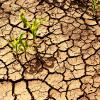
25 April 2024
Climate change could become the main driver of biodiversity decline by mid-century
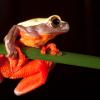
17 November 2023
Prioritizing land to avoid species extinction
02 November 2023
Rubber trees and deforestation: quantifying the impact of rubber production on tropical forests and biodiversity
Events
Focus
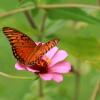
17 July 2024
Biodiversity lessons from nature
IIASA researchers Silvia Artuso and Juliette Martin reflect on a recent workshop presented at the Institute as part of the IIASA School Engagement Initiative, during which they introduced students to systems analysis and took them on an adventure to explore the amazing biodiversity of Laxenburg park.
27 June 2024
fairSTREAM

Publications
Escobar Lanzuela, N. , Seber, G., Skalský, R. , Wögerer, M., Jung, M., & Malina, R. (2024). Spatially-explicit land use change emissions and carbon payback times of biofuels under the carbon offsetting and reduction scheme for international aviation. Science of the Total Environment 948 e174635. 10.1016/j.scitotenv.2024.174635. Martin, J. , Kanade, R., Bhadbhade, N., Joy, K.J., Thomas, B.K., Willaarts, B. , & Hanger-Kopp, S. (2024). Review of the food, water and biodiversity nexus in India. Environmental Science & Policy 159 e103826. 10.1016/j.envsci.2024.103826. Boakes, E.H., Dalin, C., Etard, A., & Newbold, T. (2024). Impacts of the global food system on terrestrial biodiversity from land use and climate change. Nature Communications 15 (1) e5750. 10.1038/s41467-024-49999-z. Moersberger, H., Valdez, J., Martin, J.G.C. , Junker, J., Georgieva, I. , Bauer, S., Beja, P., Breeze, T.D., Fernandez, M., Fernández, N., Brotons, L., Jandt, U., Bruelheide, H., Kissling, W.D., Langer, C., Liquete, C., Lumbierres, M., Solheim, A.L., Maes, J., Morán‐Ordóñez, A., Moreira, F., Pe'er, G., Santana, J., Shamoun‐Baranes, J., Smets, B., Capinha, C., McCallum, I. , Pereira, H.M., & Bonn, A. (2024). Biodiversity monitoring in Europe: User and policy needs. Conservation Letters e13038. 10.1111/conl.13038. Hansda, P., Kumar, S., Singh, S., & Garkoti, S.C. (2024). Assessing the influence of invasion of Lantana camara on vegetation attributes and soil properties across varied disturbance gradients in semi-arid forests of Aravali hills, Delhi. Plant Ecology 10.1007/s11258-024-01441-6. Beher, J., Treml, E., & Wintle, B. (2024). 10 years of decision‐making for biodiversity conservation actions: A systematic literature review. Conservation Science and Practice 6 (7) e13170. 10.1111/csp2.13170. Worthington, T.A., Spalding, M., Landis, E., Maxwell, T., Navarro, A., Smart, L.S., & Murray, N.J. (2024). The distribution of global tidal marshes from Earth observation data. Global Ecology and Biogeography e13852. 10.1111/geb.13852. (In Press) Nowosad, J. & Hesselbarth, M. (2024). The landscapemetrics and motif packages for measuring landscape patterns and processes. arXiv 10.48550/arXiv.2405.06559. (Submitted) Pereira, H.M., Martins, I.S., Rosa, I., Kim, H., Leadley, P., Popp, A., van Vuuren, D., Hurtt, G., Quoss, L., Arneth, A., Baisero, D., Bakkenes, M., Chaplin-Kramer, R., Chini, L., Di Marco, M., Ferrier, S., Fujimori, S., Guerra, C., Harfoot, M., Harwood, T., Hasegawa, T., Haverd, V., Havlik, P. , Hellweg, S., Hilbers, J., Hill, S., Hirata, A., Hoskins, A., Humpenöder, F., Janse, J., Jetz, W., Johnson, J., Krause, A., Leclere, D., Matsui, T., Meijer, J., Merow, C., Obersteiner, M. , Ohashi, H., De Palma, A., Poulter, B., Purvis, A., Quesada, B., Rondinini, C., Schipper, A., Settele, J., Sharp, R., Stehfest, E., Strassburg, B., Takahashi, K., Talluto, M., Thuiller, W., Titeux, N., Visconti, P., Ware, C., Wolf, F., & Alkemade, R. (2024). Global trends and scenarios for terrestrial biodiversity and ecosystem services from 1900 to 2050. Science 384 (6694) 458-465. 10.1126/science.adn3441. Dragonetti, C., Daskalova, G. , & Di Marco, M. (2024). The exposure of the world’s mountains to global change drivers. iScience 27 (5) p. 109734. 10.1016/j.isci.2024.109734.


